The future can’t come fast enough at the Lexus Design Event at Salone del Mobile
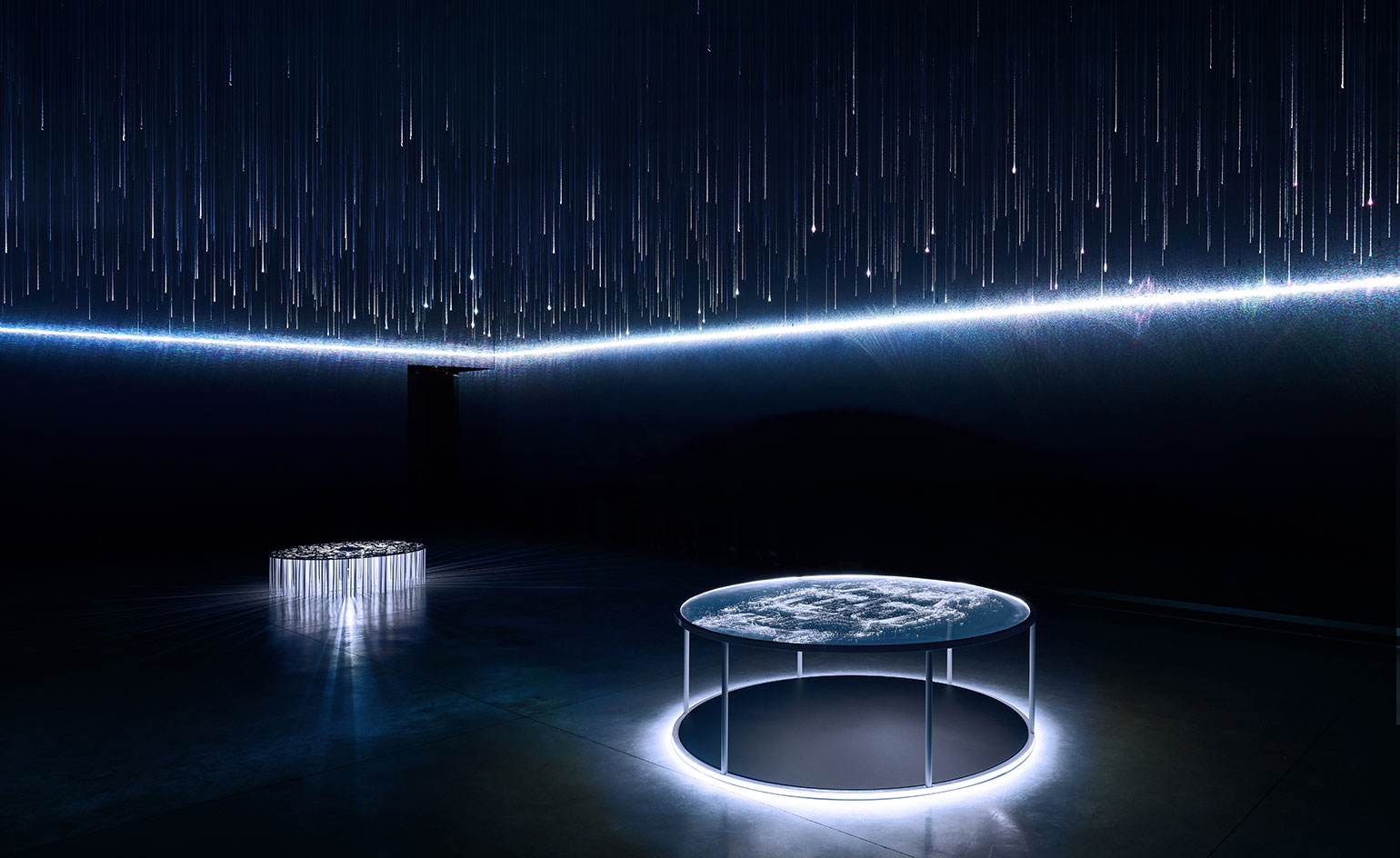
Lexus has been involved in Salone del Mobile since 2005, committing vast resources to an increasingly spectacular series of installations. From 2013 onwards, the company introduced the Lexus Design Awards, an open competitions that has broadened the debate about what design is and who it is for. 2018’s judging panel of Sir David Adjaye, Alice Rawsthorn, Shigeru Ban, Paola Antonelli, Birgit Lohmann and Lexus President Yoshihiro Sawa had to sift through around 1400 entries all submitted under the broad theme of ‘Co-’, implying some form of collaboration or connection. Proposals were both prosaic and elegant, hypothetical and practical and were whittled down to 12, with four finalists mentored and prototypes developed.
The Event itself was part of the ongoing transformation of this globally significant design fair into an adventure playground for brands, leveraging the connection between creativity, innovation and generous marketing budgets. This year, Lexus’s space was shaped by Sota Ichikawa of Tokyo-based dNA (doubleNegatives Architecture). Located behind the elegant Museo Nazionale Scienza e Tecnologia Leonardo da Vinci, Ichikawa and his team transformed a dark room into a shimmering temple of light, using a single laser light source and nearly 12,000 suspended threads to create a breathtaking dynamic experience. The moving laser caught each thread – carefully set out so that none were shadowed – to illuminate a constantly changing landscape above our heads.

Sota Ichikawa for Lexus Design Event
Alongside the Ichikawa room there was an exhibition area dedicated to the finalists, including the four prototypes and a projection-mapping display featuring the company’s newest concept, the L 1 Limitless. As Lexus’s Yoshihiro Sawa explained, the event was about ‘explaining our design philosophy,’ while also acknowledging that Milan has become a competition between car brands. ‘It’s a unique festival – designers and journalists come from all over the world. They’re looking for trends.’
Lexus and its peers might not see it this way, but we’re now in an era where the word ‘design’ has become debased to the point of irrelevance. Instead, Lexus’s involvement at Salone charts our changing relationship with material culture, and how every discipline must now search out new ways of making things to deal with new challenges in our world.
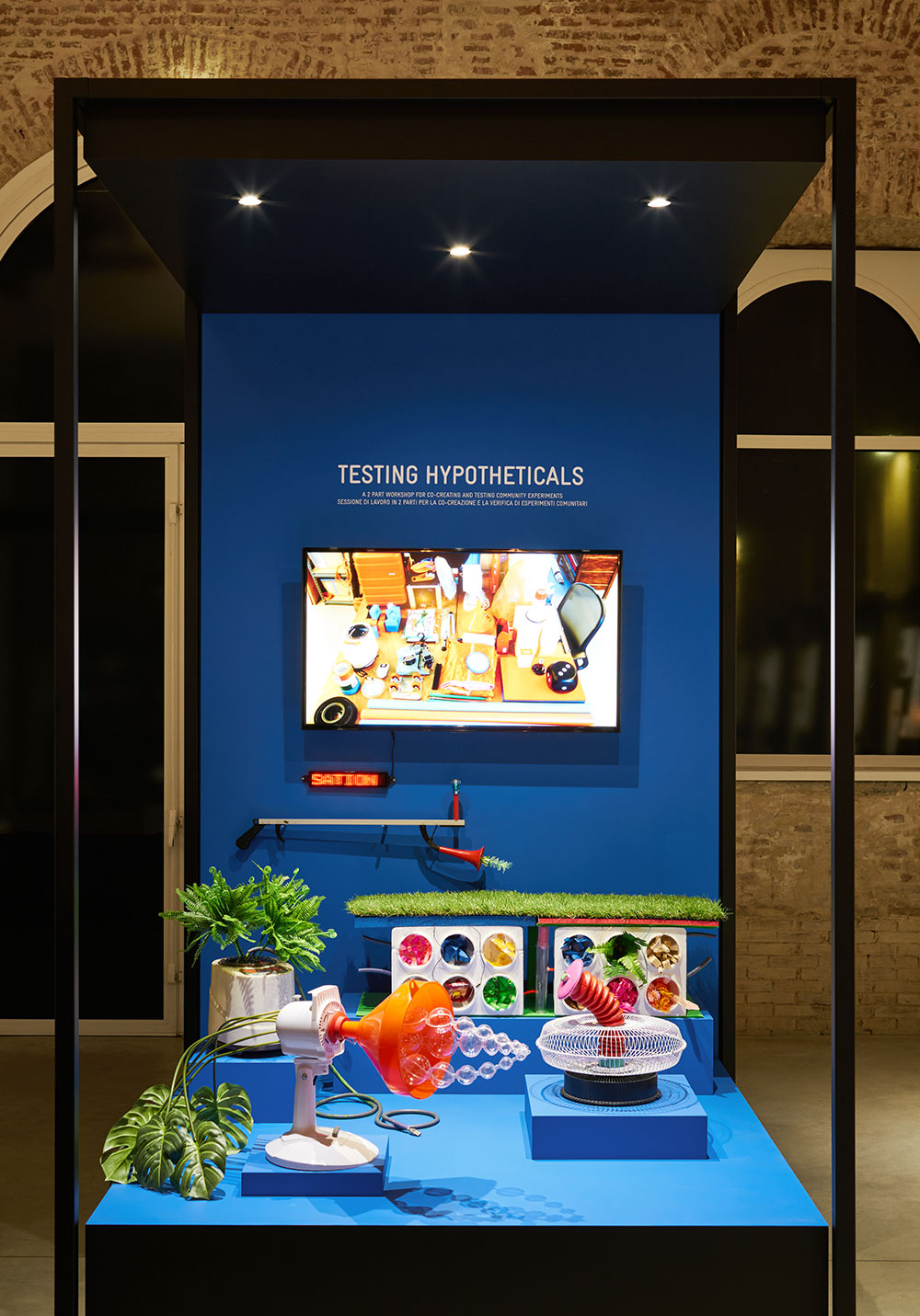
Extrapolation Factory’s kit-like installation ‘Testing Hypotheticals’, developed by Elliott P. Montgomery and Chris Woebken. The design proposed a series of workshops to investigate how we live, right down to the nuts and bolts of how houses, kitchens, bathrooms, can evolve to become more efficient and relevant. The duo were mentored by Andrea Trimarchi and Simone Farresin of Studio Formafantasma
Lexus itself is undergoing the slow but inevitable change into a ‘mobility’ company, as our relationship with desiring, choosing and owning a private car gradually evolves – even at the luxury end of the market (the irony of sitting in choking Milanese traffic during the short trip between hotel and installation was not lost on us).
The Lexus Design Event has evolved into a symbiotic and in-depth relationship with creative culture that Lexus hopes goes beyond just winning or losing. ‘Design is no longer about products, but about thinking,’ David Adjaye told us, ‘this project is about design in a global sense. I’m always looking for ideas beyond what I can imagine, and ways to use technology not for technology’s sake. Design can play a role in helping people navigate the world. It’s not about making more things.’ Ultimately, the car was not the star. For this luxury technology brand, the future can't come fast enough.
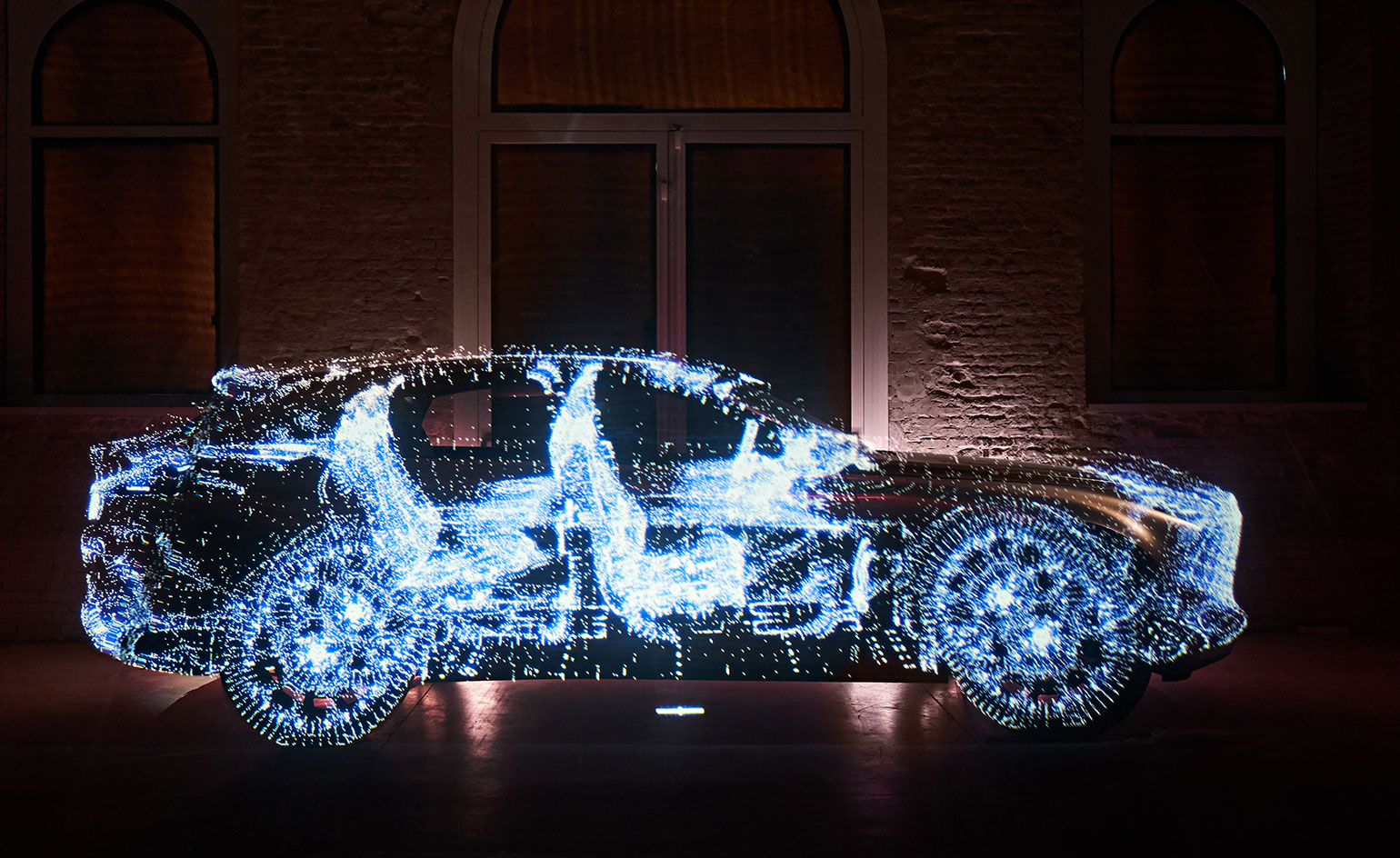
Limitless Co-Existence at Lexus Design Event
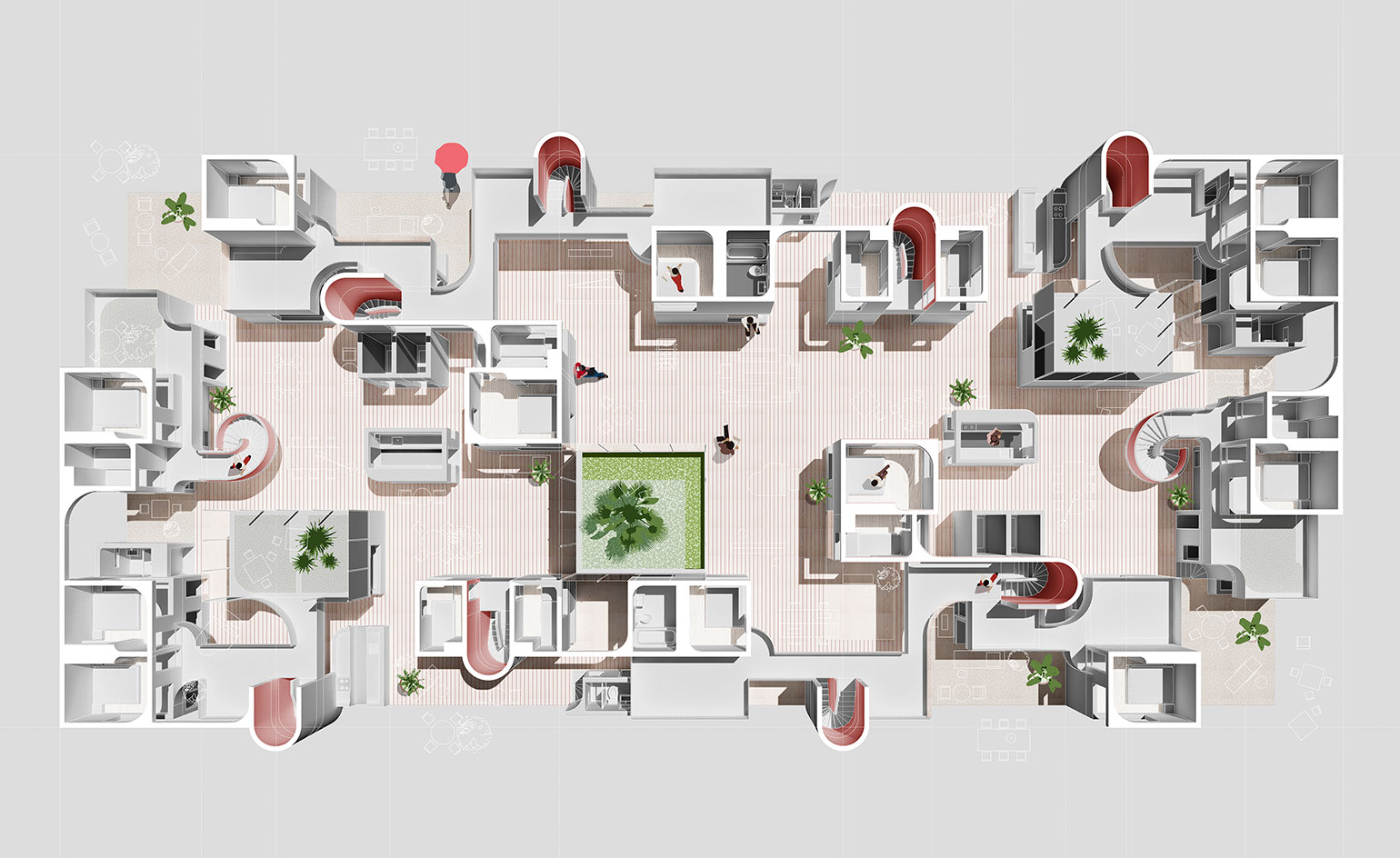
Khoa Vu and Wilson Harkhono proposed this ‘CO-Living’ project for a future residential structure that goes beyond individual households. The project reached the last 12 finalists
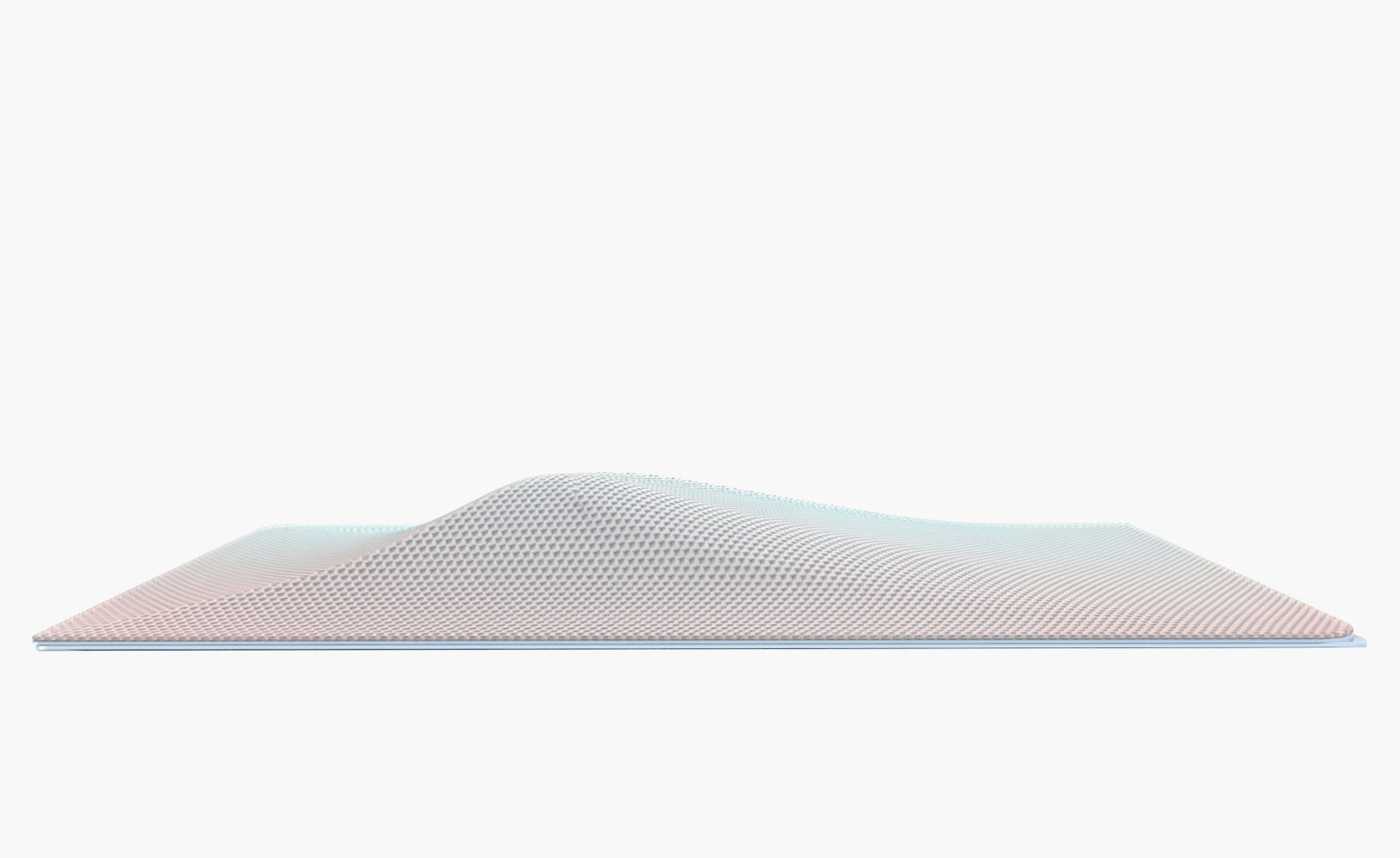
Another panel finalist, Nadezhda Abdullina and Marina Egorova of I DEAL are developing ‘Grabby,’ a ‘co-adapting cutting board’ that has an integral vacuum pump to grip objects, allowing people with a variety of special needs to use the kitchen
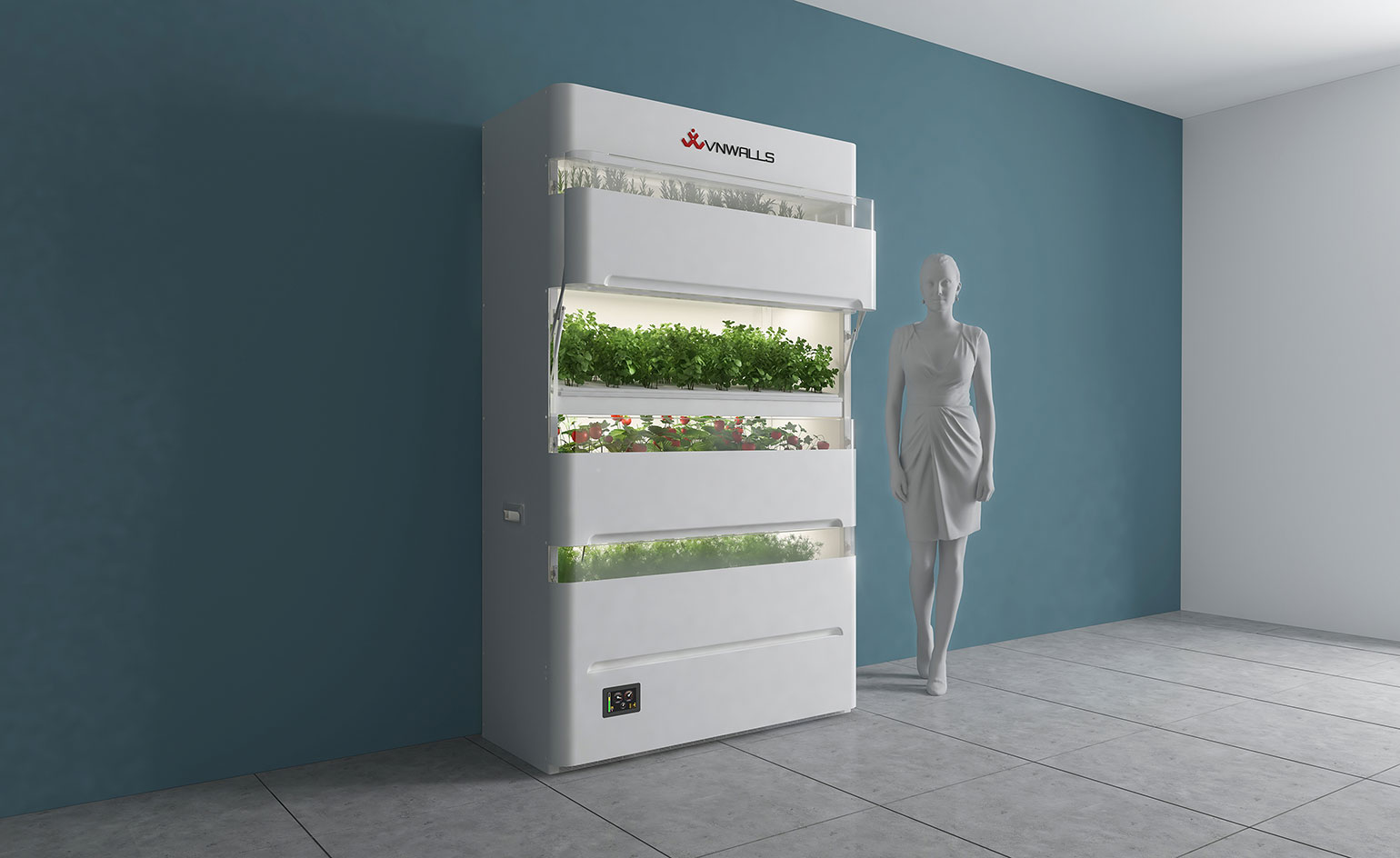
Another environmentally-driven approach, the VNWALLS GARDEN by Vietnamese studio VNWALLS proposed this futuristic kitchen appliance for the ultimate in culinary self-sufficiency
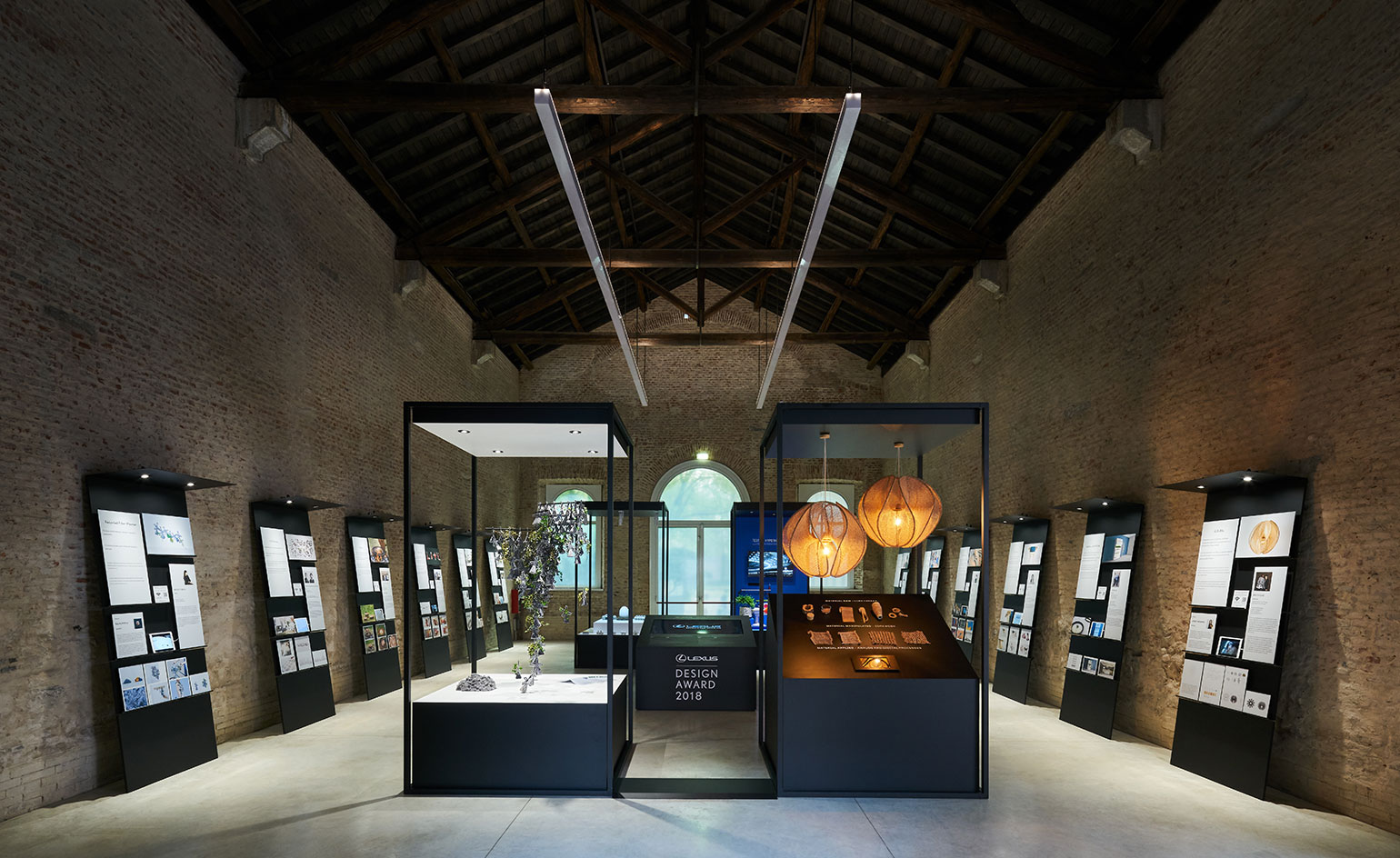
Designer Eriko Yokoi was mentored by architect Sou Fujimoto during the development of her elegant recycling solution. The textile design postgraduate created the Recycled Fiber Planter (left) as a way of blending waste clothing with immediate environmental benefits, in this case as a container for greening living spaces
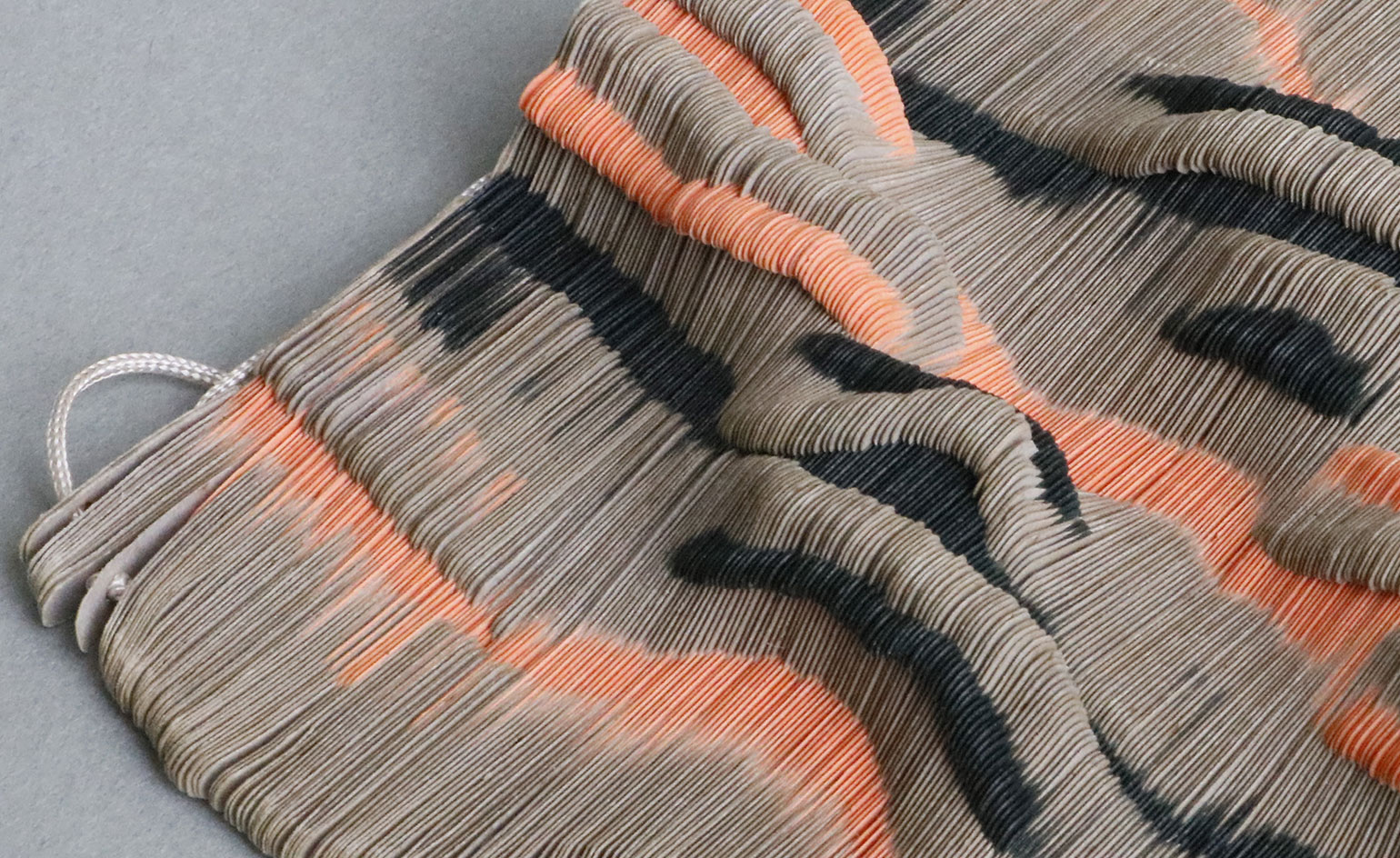
Hiroki Furukawa’s Paper Skin creates a structurally dynamic ‘cloth’ from laser cut paper, with limitless potential for furniture and even fashion design. The tactile and physical quality of the end product was intriguing
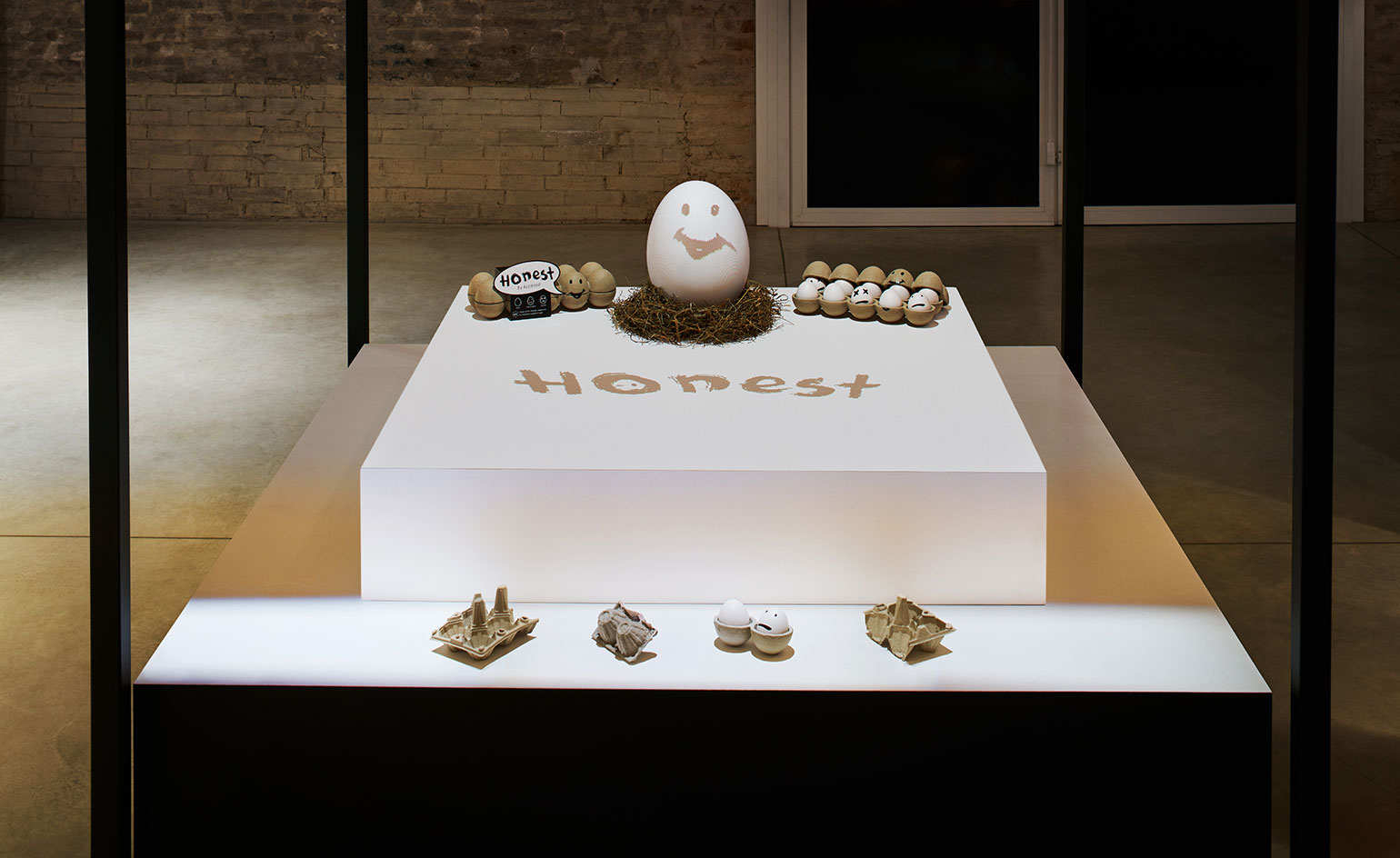
Malaysian studio aesthetid took their Honest Egg idea through to prototype stage. Paul Yong Rit Fui and Jaihar Jailani Bin Ismail’s idea uses an intelligent ink pigment to illustrate when an egg needs to be eaten before it goes bad. The duo hope to cut down on the global problem of food waste and were mentored by Jessica Walsh of NY studio Sagmeister & Walsh
INFORMATION
Receive our daily digest of inspiration, escapism and design stories from around the world direct to your inbox.
The Lexus Design Event continues until 22 April 2018 in Milan. For more information, visit the Lexus Design Award website
Jonathan Bell has written for Wallpaper* magazine since 1999, covering everything from architecture and transport design to books, tech and graphic design. He is now the magazine’s Transport and Technology Editor. Jonathan has written and edited 15 books, including Concept Car Design, 21st Century House, and The New Modern House. He is also the host of Wallpaper’s first podcast.